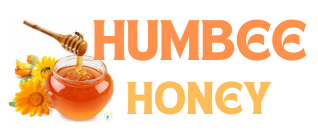Honey bees, often regarded as nature’s most industrious workers, play an indispensable role in our global ecosystem and economy. Their contribution extends far beyond the production of honey. As key pollinators, honey bees are crucial to the agricultural industry, ensuring the growth of a vast array of crops. Understanding the economic importance of honey bees helps us appreciate their role in sustaining food security and biodiversity. Here’s a detailed exploration of The Economic Importance of Honey Bees and why their preservation is vital and why their preservation is vital.
The Economic Importance of Honey Bees
1. Pollination: The Backbone of Agriculture
Enhancing Crop Yields
Honey bees are among the most effective pollinators, transferring pollen from flower to flower and facilitating the reproduction of many plants. This process is essential for the production of fruits, vegetables, nuts, and seeds. It is estimated that one-third of the food we consume relies on pollination by bees and other insects. Crops like apples, almonds, blueberries, and cucumbers depend heavily on bee pollination to achieve high yields and quality.
Economic Value of Pollination
The economic value of pollination services provided by honey bees is staggering. In the United States alone, the pollination of crops by honey bees is estimated to contribute more than $15 billion annually to agricultural output. Globally, the value is much higher, underscoring the critical role honey bees play in food production and agricultural sustainability.
2. Honey Production: A Sweet Contribution to the Economy
Commercial Beekeeping
Commercial beekeeping is a significant industry, with honey production at its core. Beekeepers manage hives to produce honey, which is harvested and sold in local and international markets. The global honey market is a multi-billion-dollar industry, driven by the demand for natural sweeteners and honey’s numerous health benefits.
Job Creation and Income Generation
The honey industry supports thousands of jobs worldwide, from beekeepers and honey processors to those involved in distribution and retail. Small-scale beekeepers, particularly in developing countries, rely on honey production as a primary source of income, contributing to poverty alleviation and economic stability in rural areas.
3. Beeswax and Other Hive Products
Diverse Applications of Beeswax
Beeswax, another valuable product from honey bee hives, has diverse applications across various industries. Cosmetics, pharmaceuticals, candles, and natural food preservatives use it. The demand for organic and natural products has boosted the market for beeswax, further emphasizing the economic importance of honey bees.
Propolis and Royal Jelly
these are lesser-known but highly valuable hive products. Propolis, a resinous substance collected by bees, has antimicrobial properties and is used in health supplements and natural remedies. Royal jelly, a nutrient-rich secretion, is marketed for its potential health benefits and is a key ingredient in some dietary supplements and skincare products.
4. Environmental and Biodiversity Benefits
Sustaining Ecosystems
Honey bees contribute to the health of ecosystems by supporting the reproduction of wild plants. These plants provide food and habitat for other wildlife, maintaining biodiversity and ecosystem stability. The loss of honey bee populations can have cascading effects on entire ecosystems, highlighting their ecological and economic significance.
Enhancing Crop Diversity
By pollinating a wide variety of crops, honey bees help maintain agricultural diversity. Crop diversity is crucial for food security, as it reduces the risk of widespread crop failure due to pests, diseases, or changing climate conditions. Diverse crops also contribute to more balanced diets and improved nutrition for populations.
5. Challenges and Threats to Honey Bees
Pesticides and Habitat Loss
Despite their importance, honey bees face numerous threats. Pesticide exposure, habitat loss, and monoculture farming practices have significantly impacted bee populations. These factors reduce the availability of food sources and nesting sites, weakening bee colonies and their ability to thrive.
Climate Change
Climate change poses another significant threat to honey bees. Altered weather patterns can disrupt the availability of floral resources and affect the timing of flowering plants, leading to mismatches between bees and their food sources. Extreme weather events can also directly harm bee populations and their habitats.
Diseases and Pests
Honey bees are vulnerable to various diseases and pests, such as the Varroa mite, which can decimate colonies. The spread of such threats underscores the need for effective management and conservation strategies to protect honey bee populations.
Humbee Honey Insights
The economic importance of honey bees cannot be overstated. Their role in pollination, honey production, and the provision of other hive products is crucial to global agriculture and ecosystems. Protecting honey bee populations is not just about preserving a species; it is about safeguarding our food supply, supporting economies, and maintaining biodiversity. Sustainable agricultural practices, habitat conservation, and research into bee health are essential to ensure that honey bees continue to thrive and contribute to our world. By understanding and addressing the challenges they face, we can secure a prosperous and balanced future where honey bees remain a vital resource.
